The Ollantaytambo Ruins were built in the 15th century as part of the Incan empire. They are located at the northern end of the Sacred Valley.
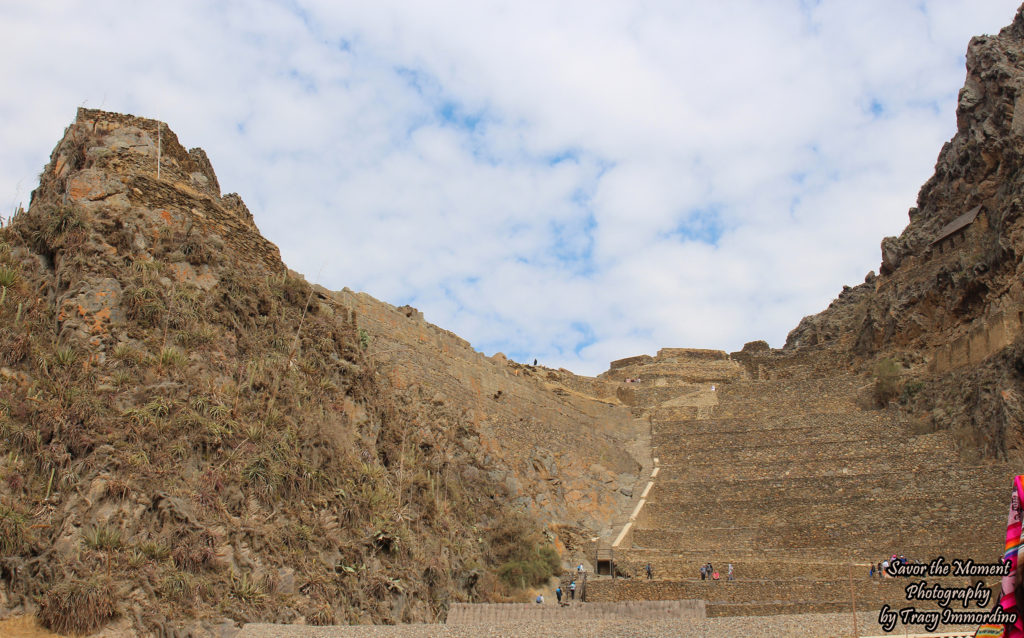
Temple Hill of the Ollantaytambo Ruins in Peru
Temple Hill, also called the Fortress, was used primarily as a religious site. It consists of farming terraces, crop storage buildings and the Temple of the Sun (which was never completed).
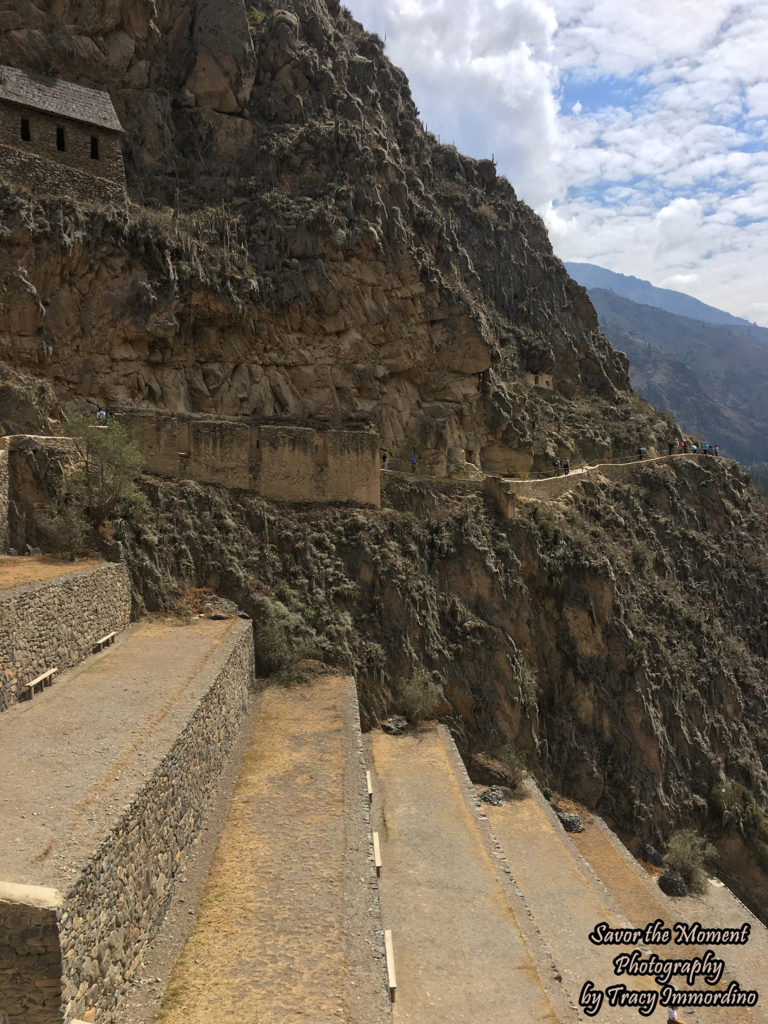
The Farming Terraces of Temple Hill at the Ollantaytambo Ruins in Peru
When climbing to the top it is important to be mindful of the altitude. The town of Ollantaytambo, even being located in a valley, is 9,160 feet above sea level (2,792 m).
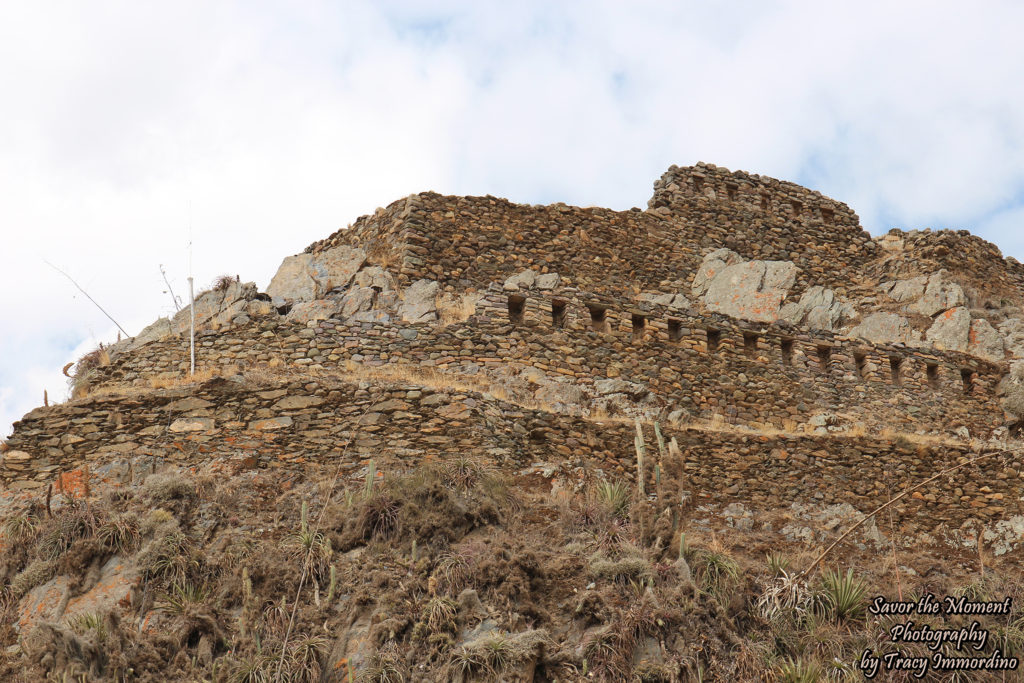
A section of Temple Hill at the Ollantaytambo Ruins in Peru
Window placement in Incan architecture was always purposeful. In many cases they were aligned either with the sun or with various constellations, which helped the ruling elite to keep track of the seasons. Our guide, Luis, was a walking encyclopedia.
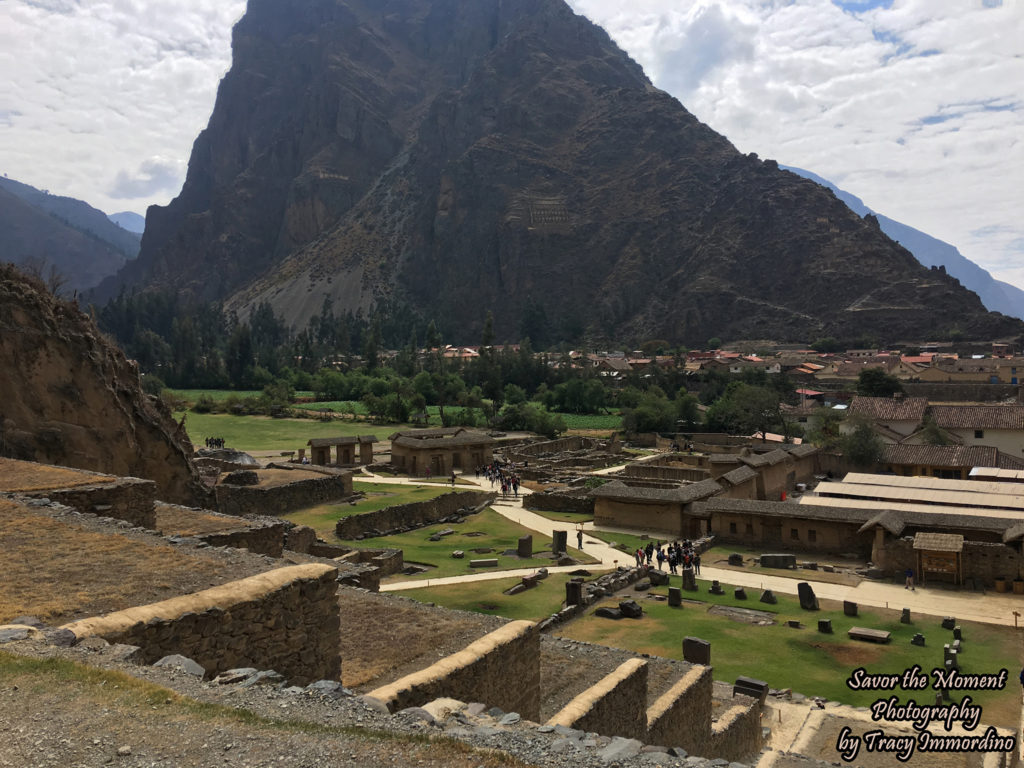
Granaries Built Into the Side of the Mountains
Across from Temple Hill you can see large structures built into the side of the mountain. We assumed they were used for military purposes. We were wrong. They were used to store crops. The higher altitude and the way they were constructed to allow maximum air flow kept the crops fresh. The engineering is remarkable.
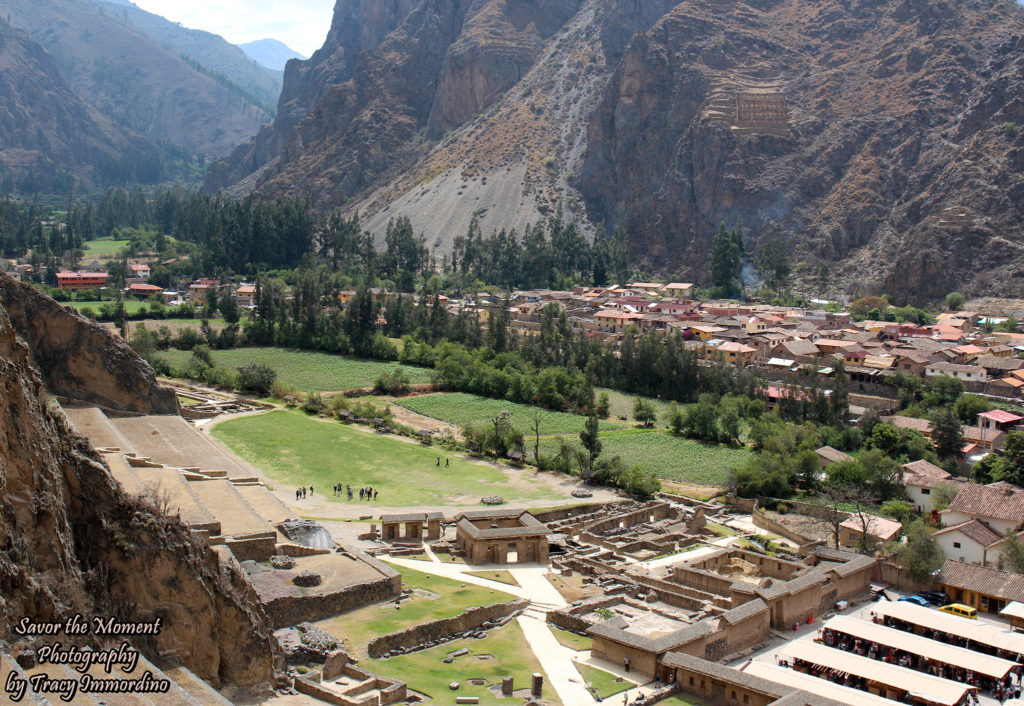
The View From Temple Hill
The view of the town and valley is stunning. There is a path leading up to the granaries but we did not have enough time to visit them. In retrospect, it would have been nice to have spent an entire day here exploring the ruins in more depth, as well as the town. We were scheduled to hike down the Patacancha Valley before lunch, so our time was quite limited.
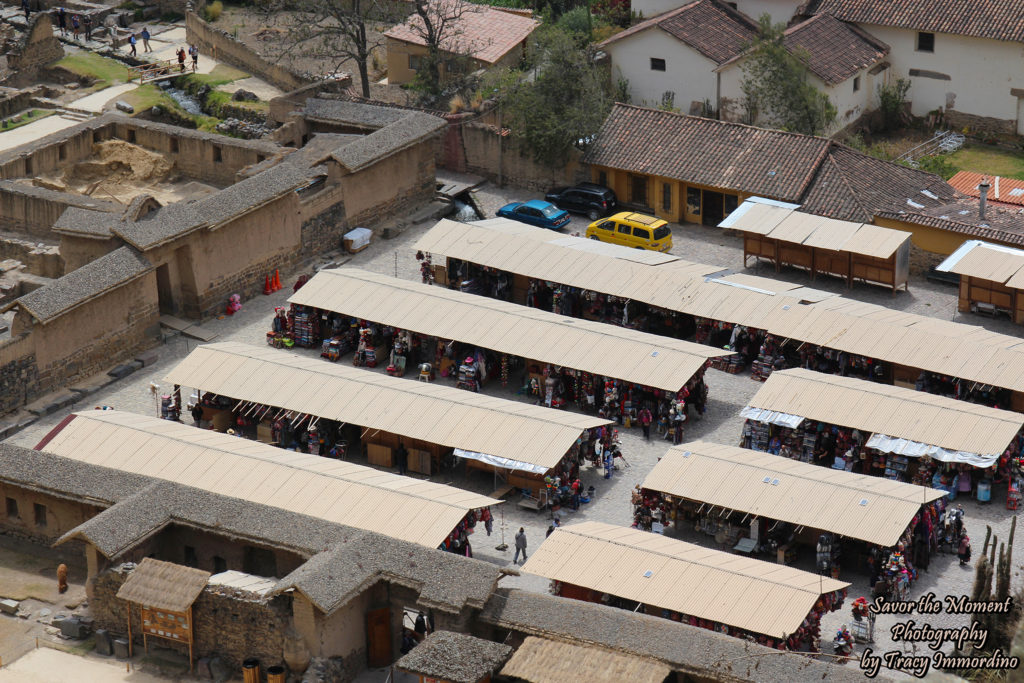
The Market in Ollantaytambo
There is a market set up that you must walk through to get to the entrance. I was disappointed that we did not have time for shopping, as we really wanted to support the local businesses and artisans.
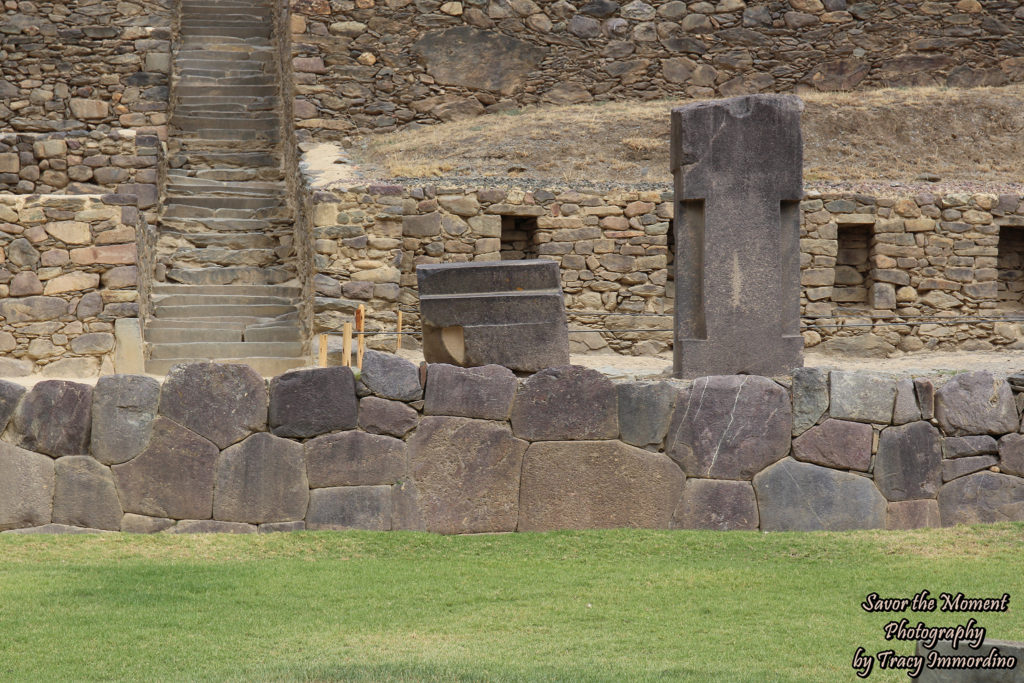
Masonry of the Incans
The Incans utilized several different construction methods, all remarkable and impressively ‘earthquake proof’. I found the “pillow-faced” style the most impressive. This method involves sanding down stones so they fit together in a way that resembles a jigsaw puzzle.
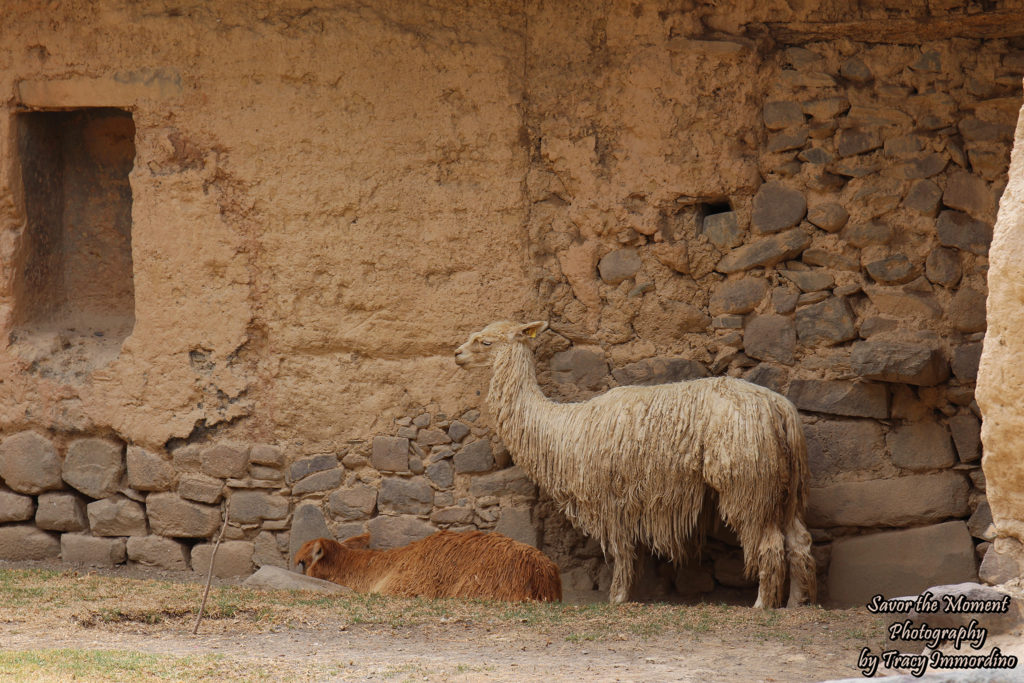
Llamas at the Ollantaytambo Ruins
We saw our first llamas in Ollantaytambo. The ruins are open daily from 7am – 6pm. The cost of entry is 130 soles. Kuoda, our travel agency, purchased all of our tickets in advance. We never even touched our tickets, Luis handled everything. Our only responsibility was to show up on time.
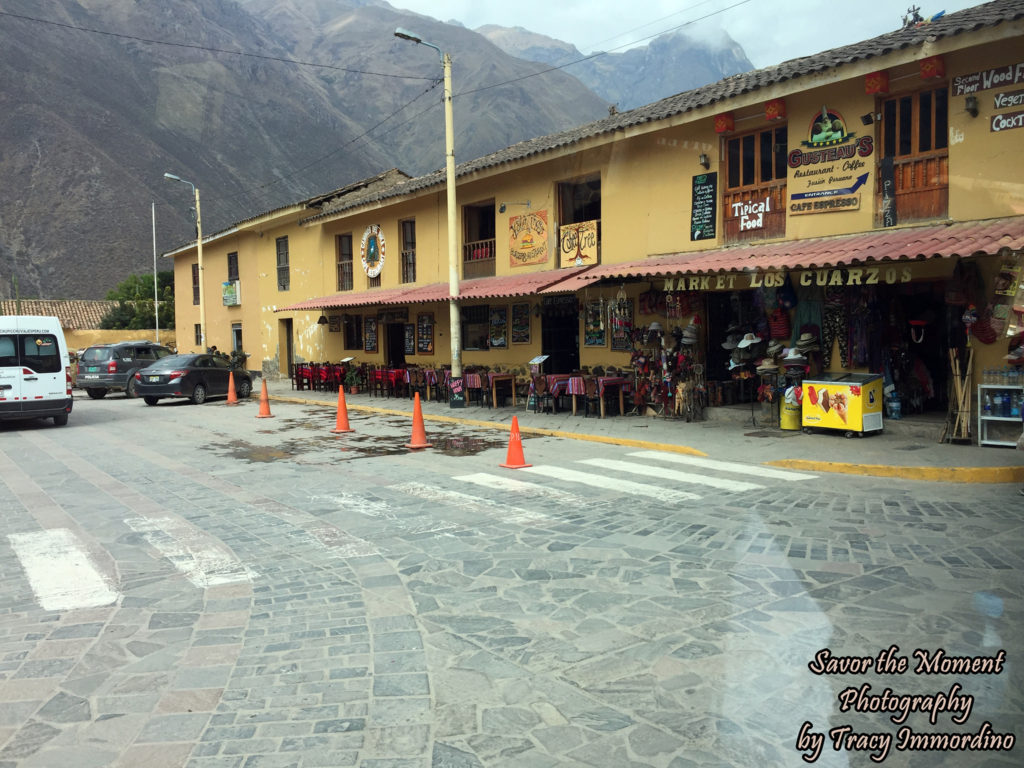
The Town of Ollantaytambo
We did not get to do any sight seeing in the town. I took some pictures as we drove through. Here you’ll notice the roads are made from stone. As I mentioned in my previous post, roads were rarely paved.
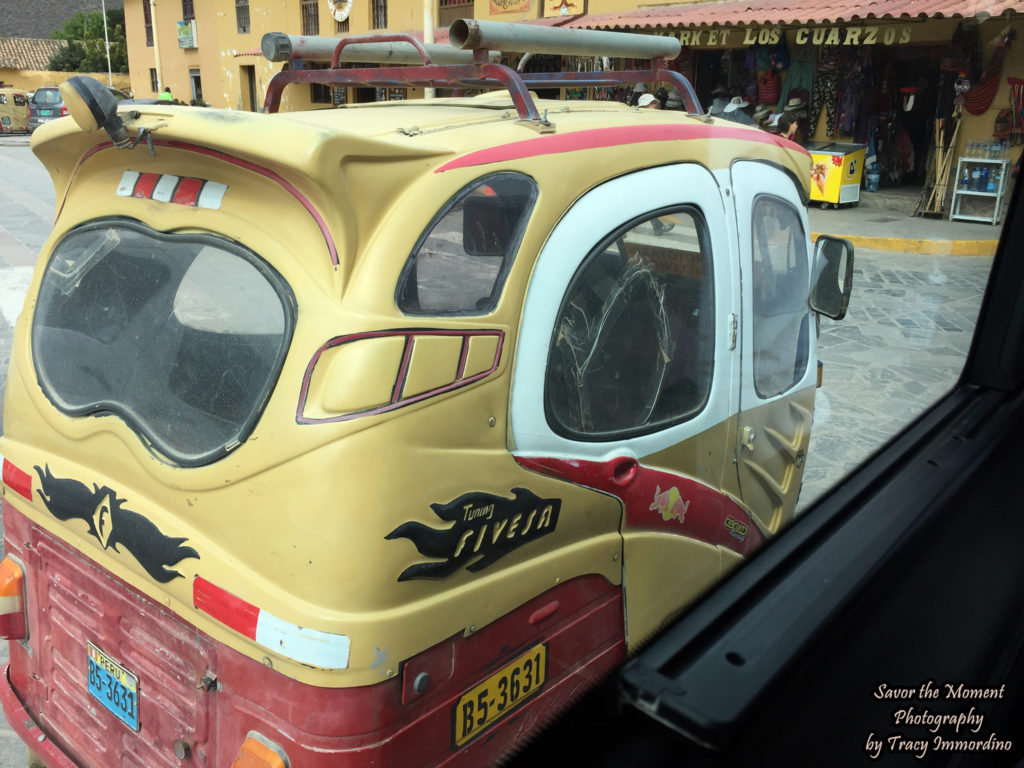
A Taxi in Ollantaytambo
This is one of many taxis that we saw. It has one wheel in front and two in back. It was a moment of culture shock to me when I first saw it and I was really happy to be in a spacious passenger van. I could not imagine fitting into that with my 6ft 3in husband.
After our rather brief tour of the ruins we were driven to our next destination for a hike down the mountainside in Patacancha. As always, wishing you happy travels and fantastic adventures in this thing called life.
(All pictures are available for purchase as Fine Art or Digital Downloads at full resolution through Alamy. If you see something you like, click on the link. If you are unable to find it, use the Contact Me page and I will make sure the image is available.)
More Adventures in Peru
Hiking to the Summit of Huayna Picchu
Chunco Macaw Clay Lick – Amazon Rainforest
Hiking Through the Amazon Rainforest to Oxbow Lake
Sight Seeing and Shopping in the Sacred Valley
Aguas Calientes the Gateway to Machu Picchu
To Walk or To Ride To Machu Picchu
Pin For Later!
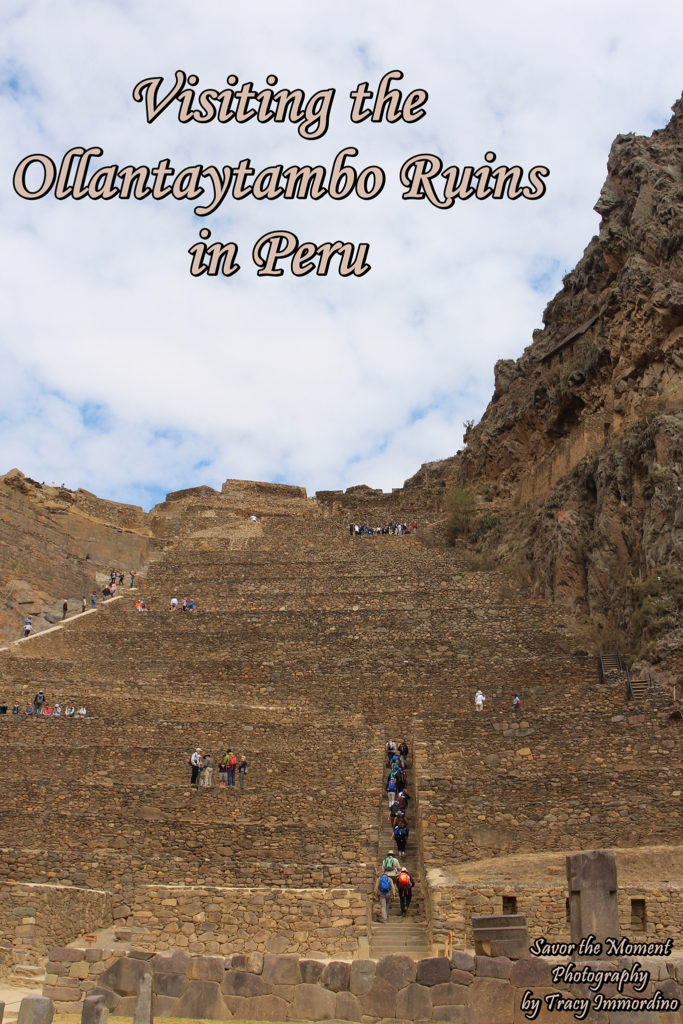
Visiting the Ollantaytambo Ruins in Peru
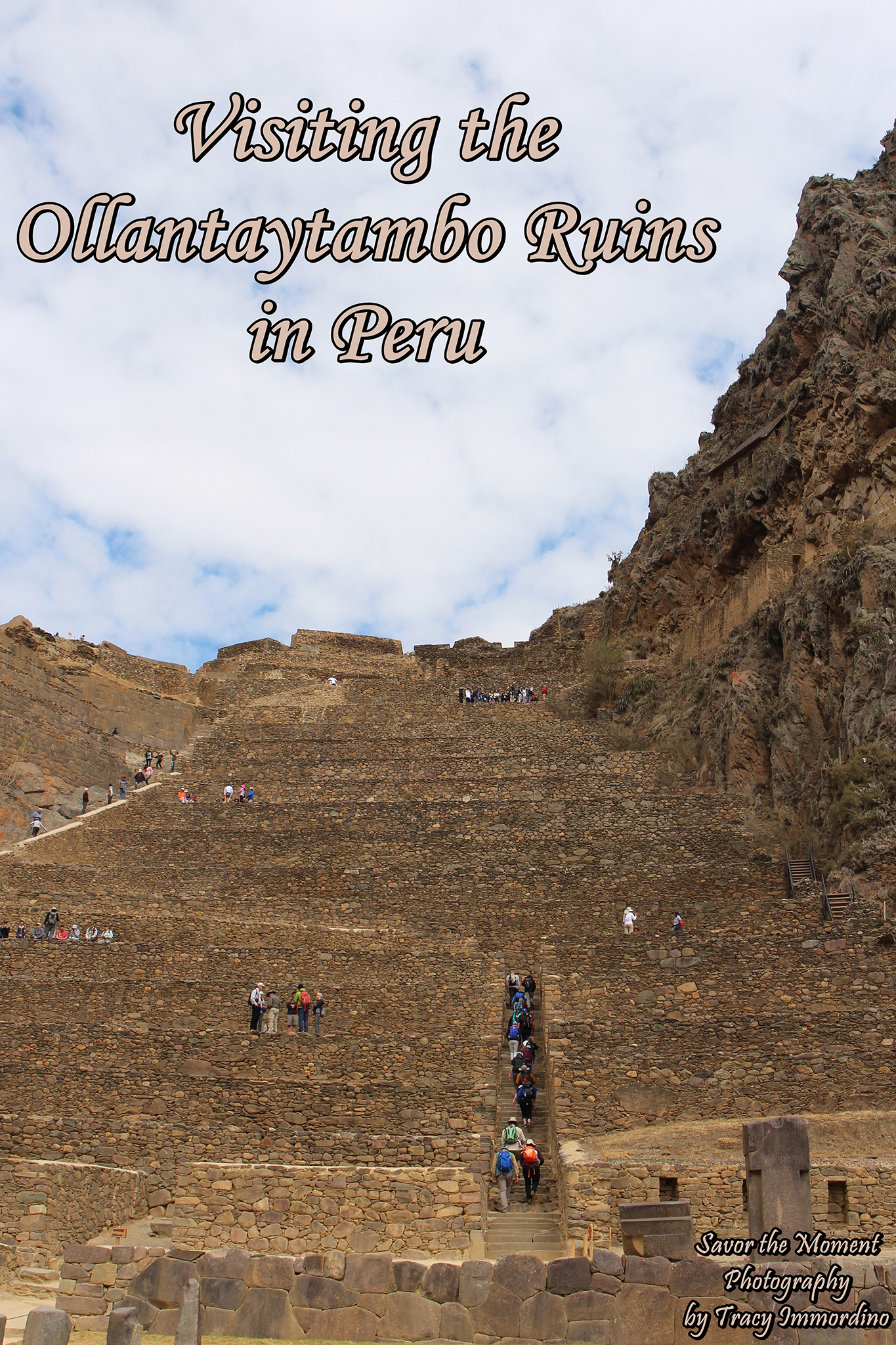
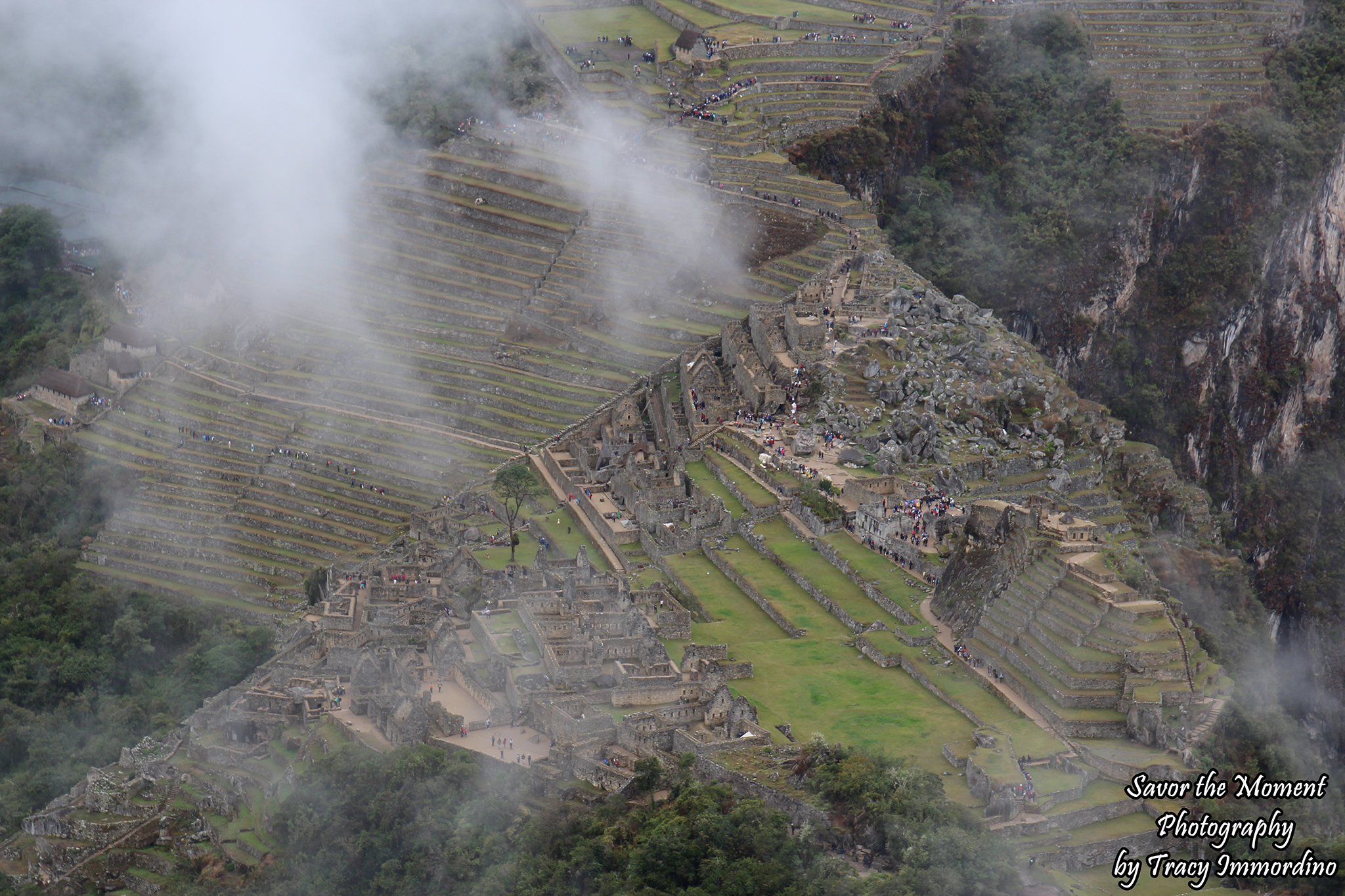
Leave a Reply
You must be logged in to post a comment.